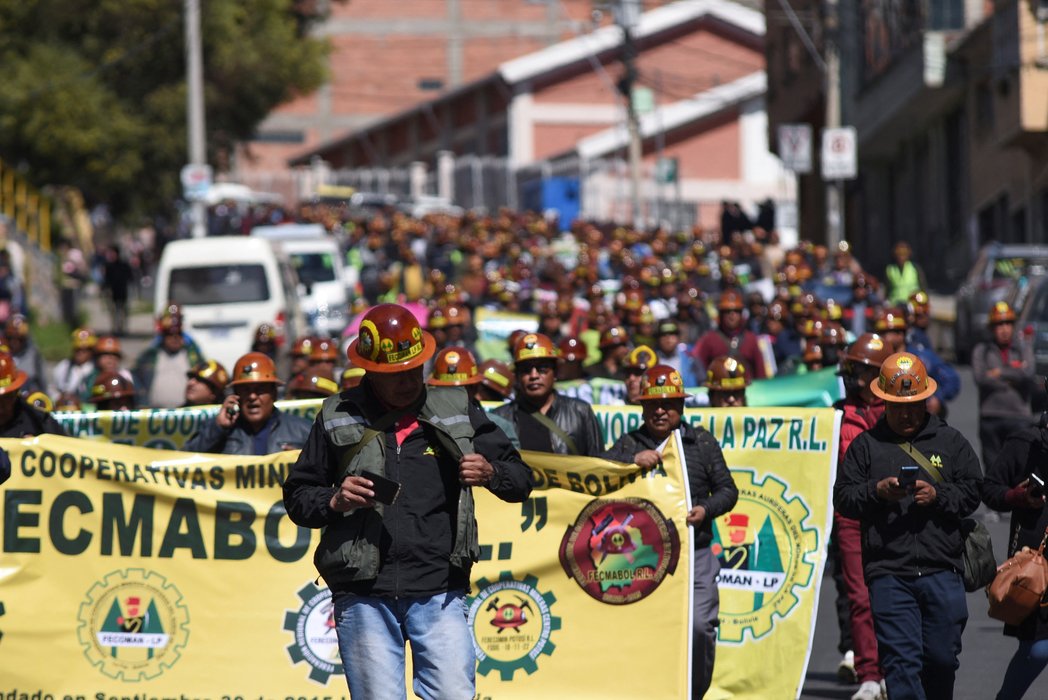Introduction
In October 2023, the Inter-American Commission on Human Rights (IACHR) published the first report issued by the MESEG-Bolivia, the Commission's mechanism to monitor the implementation of the recommendations made by the Interdisciplinary Group of Independent Experts for Bolivia (GIEI-Bolivia), concerning the acts of violence and human rights violations in the context of protests in October 2019.
The IACHR’s report highlighted both the progress and challenges in addressing human rights violations in the country. While the state has taken steps to strengthen institutions, revoke amnesties and develop redress measures, the report identified a lack of comprehensive reparation programmes and limited access to justice for victims as major challenges. The IACHR encouraged the state to improve coordination with public prosecutors to ensure access to justice.
Peaceful Assembly
Tensions escalate as mining cooperatives clash with security forces over exploitation rights
On 6th and 7th November, thousands of mining workers took to the streets in La Paz to demand the annulment of a regulation that prohibits them from mining gold in protected areas, especially Madidi National Park, located in the upper Amazon river basin with the world’s greatest biodiversity of flora and fauna.
According to the newspaper El País, miners threw stones at security forces and temporarily occupied the National Protected Areas Service’s headquarters. The protesters also damaged the offices of the mining authority, which they blame for “not providing them with legal protection.” Bolivia’s Federation of Gold Mining Cooperatives of Bolivia (FECMABOL) declared that “the mining authority takes a long time to approve concessions, which then must undergo another lengthy approval process by the country’s legislature. Rival mining companies are constantly disputing exploitation rights with each other and with Indigenous peoples in the concession areas.”
The protest moved through the streets of La Paz amidst the detonation of firecrackers and some dynamite blocks and continued with the division of the march into several groups that set up blockades around the city. In the evening, clashes broke out between security forces and demonstrators. As a result, the police used tear gas and detained seven people. Additionally, journalists reported being attacked by protesters (See below - freedom of expression).
In Bolivia, cooperatives are small associations with more than 60,000 members that pay lower taxes for mining gold than private companies. As reported by the EFE News agency, according to the government, 99% of gold in the country is mined by cooperatives, but there have been reports that foreign corporations hide behind cooperatives to avoid paying taxes.
Gold cooperatives and the government have been in conflict over mining access to protected areas in Bolivia. In October 2022, thousands protested over new gold tax regulations. Following this, the Ministry of Environment and Water and the gold mining cooperatives of the Regional Federation of Mining Cooperatives of Northern La Paz (FECOMAN) signed an agreement to modify the management plans of three protected areas - Cotapata National Park and Integrated Management Natural Area, Apolobamba Integrated Management Natural Area, and Madidi National Park - to allow mining in restricted areas. However, the agreement became ineffective due to the rejection by environmental organisations and Indigenous federations.
Expression
Attacks and threats against journalists during mining cooperative protests
In November 2023, journalists covering mining cooperatives’ protests reported incidents of attacks and verbal threats. On 6th November, three reporters and three camera operators were attacked by the protesters, while journalist Ramiro Charcas was accused of “discrediting and speaking ill of the mining sector” during a live transmission, which was interrupted.
On the same day, journalist Wilma Catari was forcibly removed from an interview with mining leaders about the sector’s tax contribution to national accounts. The following day, miners prevented journalist Roly Flores and his camera operator from covering a gathering in plaza San Francisco by physically pushing them away.
In response, the National Association of Journalists of Bolivia (Asociación Nacional de Periodistas de Bolivia, ANPB) and the Association of Correspondents for the International Press (Asociación de Corresponsales de la Prensa Internacional, ACPI) condemned these violent acts and called on the authorities to ensure the safety and physical integrity of journalists.
